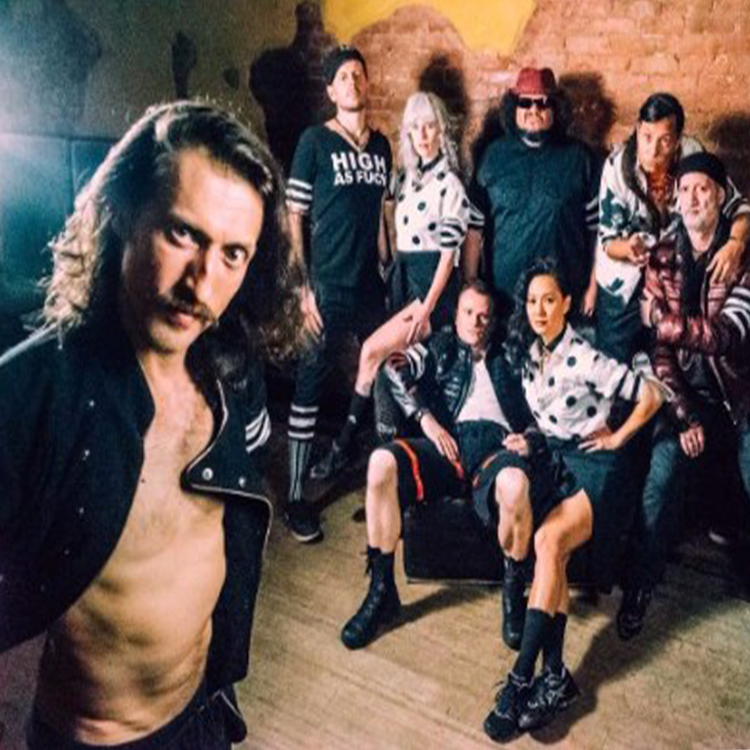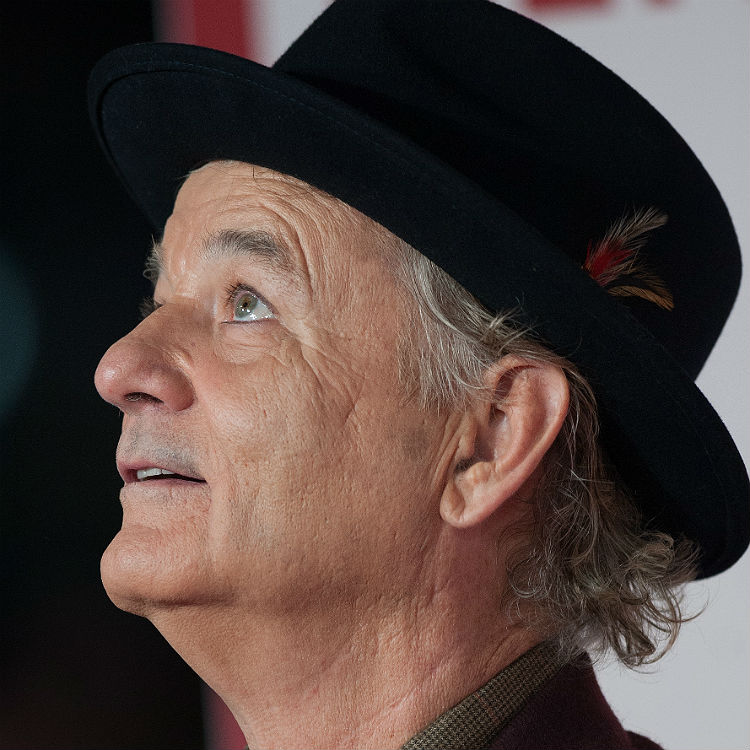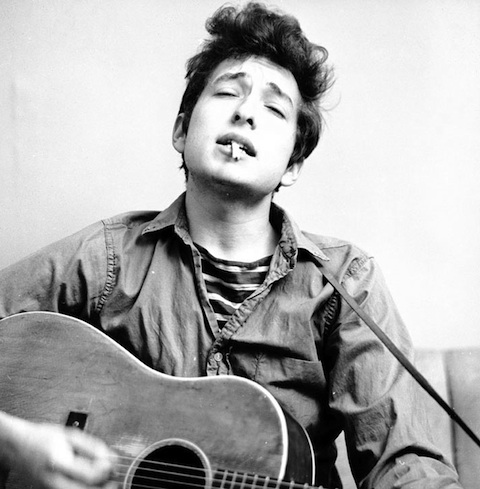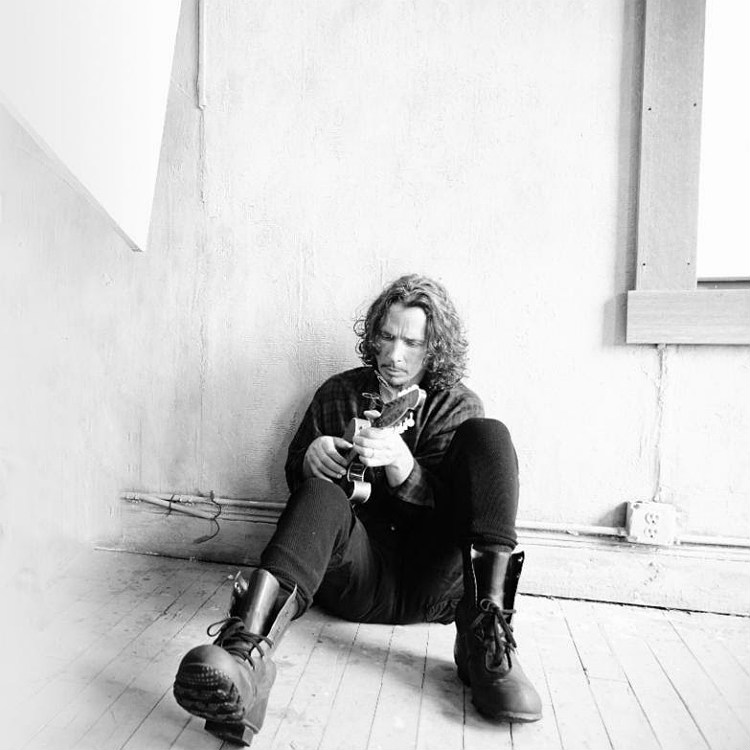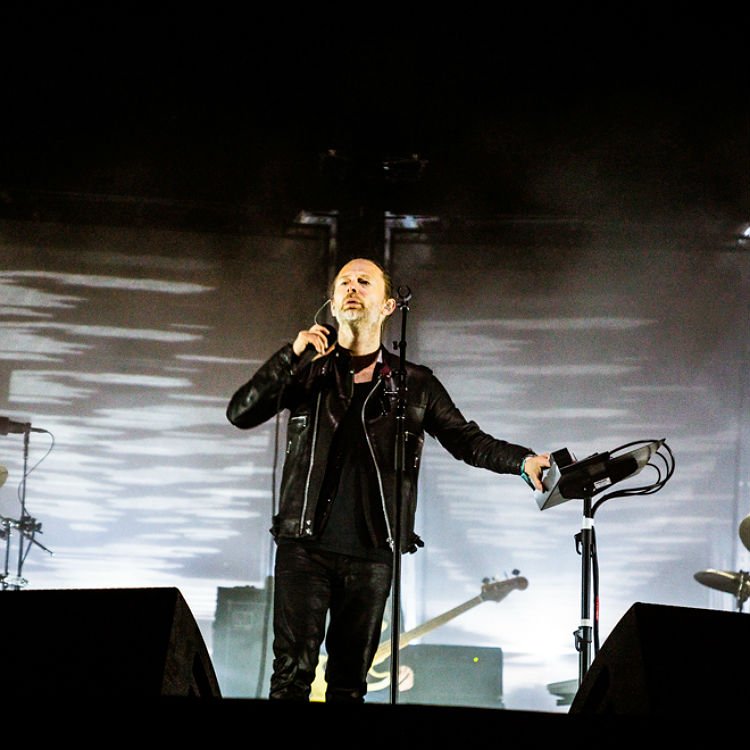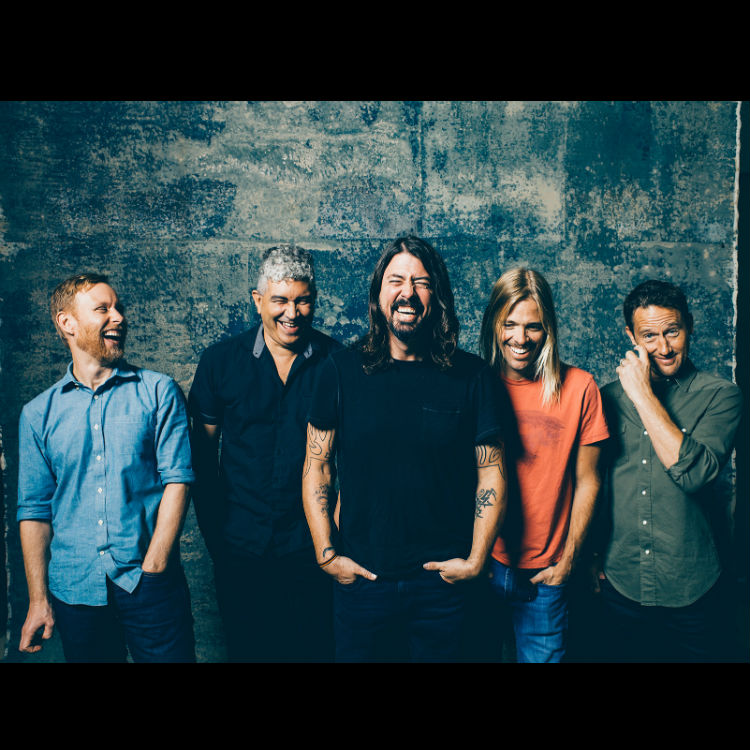 Photo: Simon Sarin
Photo: Simon Sarin
Pokey LaFarge is a man who may well end up messing with the space-time continuum. To look at the singer-songwriter is to be confronted with an image that suggests that Franklin D. Roosevelt’s New Deal is about to be put into place. Indeed, with his slicked back hair, double-denim outfit complete with massive turn-ups on his wide jeans, Pokey LaFarge could easily have stepped out of the pages of a John Steinbeck novel.
His music, too, recalls the era of and music being broadcast across prairies and dustbowls. Little wonder, then, that Pokey LaFarge and his band of simpatico players caught the attention of Jack White who invited Pokey to contribute to his debut solo album, Blunderbuss. So taken was White that LaFarge opened for White on several live dates at the time as well recording an album for Third Man Records.
But if LaFarge harkens back to a time long gone, his concerns are very much rooted in the present. His new album, Manic Revelations, finds LaFarge turning his eye to the racial unrest and disproportionate amounts of police brutality suffered by the African-American community in the second decade of the 21st century. It’s about confronting the status quo and asking pertinent questions about a world seemingly going mad. But it also sees LaFarge making a perceptible shift in his sound. He’s still fuelled by the drive to make what is essentially American, vernacular roots music but it’s sound that at once straddles the past and the present.
Gigwise meets Pokey LaFarge a stone’s throw away from the famed Abbey Road to find out more about where he’s been and where he’s headed and how the past and present are finely balanced…
Let’s talk about the new album, Manic Revelations. You’ve stated that manic revelation is the state in which an artist creates. Is this something that can be turned on by will or is a state that you gradually enter into? What's the process?
Manic revelations are the fruits we reap from a functional insanity, which can sometimes be giving, and at others not. I see it like a white-knuckle drive; you’ve got to enjoy the ride. I’m very much aware everything I am as a person is going to come out in all that I produce. I see directly where my life’s influences have transcended into my material. I just keep living and stay hungry, stay curious for more experiences and an endless source of inspiration for writing songs.

There is a marked difference in your sound with this album. Was that always the intention or was it a by-product of the production process?
I found it was both. I did change my perspective as I have opened up my mind to new things. As you’re living and digesting experiences - whether it's art, music, books, things you’re feeling, thinking - you’re nurturing your mind. I see my mind like my body: you are what you eat. At the same time I very much seek out collaboration. I don’t want to just do it on my own. Sometimes, I can’t do it on my own so I like to work with people that inspire me and that will make me better. Also, the band relationships are there to be nurtured as well as it’s like a family, it’s like being married to seven dudes. I want to make sure they feel like they’re a part of it going forward and putting their stamp on it because they’re going to be playing it on the road.
Is it a collaborative process with your band or are you laying down which way things are going?
Certainly, the direction is set out for me and I write almost all the material that we play. Over this last two years, I’ve found myself commenting on social issues as well as going back to my life’s experience. The work just ended up sounding different. Although to me it doesn’t sound different as I can see the emotion, and I can notice it every day and other people don’t notice that. They’re not a part of that so it might be a shock to them – and to my band. They took a little brain massaging to get used to it.
Tell me about the new single, ‘Riot In The Streets’. What is the dialogue that you want to start?
Well, it’s that sometimes I notice people are struggling. I notice that there is a power struggle; I notice some people have no choice but to choose a side; I notice other people are clamouring to choose a side and both sides are on very shaky ground. My opinion is relatively objective. I condemn what happened with Michael Brown; justice was not served in this case. But as I was writing the tune, and what happened in Ferguson became much more of an international issue, people were finally hearing about cops shooting black men in the street, I found I was concerned with the dialogue. I didn’t think these polar opposite sides who were controlling the dialogue were getting any ground. I felt like I was in a position as who I am - the artist and person - in my community to try and get the dialogue going in a different direction. Not one of black and white, right and wrong, not one of opposites. It’s all grey.

Do you view your social commentary as an artistic responsibility?
I mean, no. I don’t think it is. But at the same time, absolutely. I think there should be a freedom retained in your art to be able to say or not say whatever you want. But at the same time you have to be held responsible for what you say or don’t say and use the freedom you have. People are certainly going to have their opinions on you when you do and you have to live with it. It’s just part of being an artist. You have to tuck your shirt in, be a big boy and keep putting beauty in the world as much you can. It’s important to get better, inspire people, entertain and all that kind of stuff.
I chose to write ‘Riot In The Streets’ in this way after three or four drafts because I felt like this is the way I should write it. The thing that could be a point of contention in the song is using the world “riot”. There are people in the activist community that don’t like usage of that word because that was a word that was used by people to discount any credibility from the activist. The argument being they were just all rioters and they were destroying personal property and everything like that.
The reason I used that term "riot" is because you cannot discount the fact there were riots, but that’s not the point when people get pushed to the brink; it’s not even a choice as so much as just a reaction. People are so fed up, backs against the wall, nothing else they can do but fight and riots are a by-product of that feeling. It was not me trying to discount them, it's desperation.
Do you see your music as following in the tradition of the great American musical storytellers such as Woody Guthrie or Jimmie Rodgers? What do you hope to add to that lineage in the 21st century?
I wouldn’t say I do it consciously. If I were to hope that, it would be a false hope. They were themselves, iconic. They’re legends because they were their own men; their own artist. I don’t know if they were thinking about the people before them in their lineage in that respect. I mean, I would rather be in the same lineage of guys like Tom Waits and Roy Orbison and a suite of other amazing artists. That lineage makes more sense for me because this is just one song of many I have written; I’m not overly political.
Given that we’re in era of mass streaming and music on demand, does music have any cultural worth or is it something that simply gets dipped into and disposed of?
Well, everything in life you’ve ever absorbed through any one of your senses is all in your brain, and it’s in there to the point it will settle in your bones and deteriorate you, and it’s doing things to you in your mind and you’ve just go to pull it all out.
I’m a person whose reading and listening to music constantly including that all that life has to offer. I believe if I spend enough time getting out of my head songs will naturally come about. My songs come out in dream states, naps and sensory deprivation, relaxation, it’s all in there you just have to bring it out.
There’s so much out there to offer music-wise so I go out and digest it. I love Apple Music and I love Spotify because I’m constantly exposed to new music. I’m downloading or buying 10 to 15 albums per day, so to answer your question: they absolutely have a cultural worth.
I do think it has as much of a locale as it used to, though. What’s funny is even old music people weren’t from where they were marketed to be from. It’s not like all The Temptations were from Detroit, just like not everyone from Sun Records was from Memphis.
I think it has as much of a cultural worth as you want to tell people you need to tell people it means something to you or they don’t give a shit.

You’ve recorded and toured with Jack White. What was the most important thing that you learned from him and how does this manifest itself in what you do?
I’ve got to be good friends with Jack over the years. I’ve learned we’re both big perfectionists; we have a strong work ethic; we’re eclectic in our taste, and have a lot of different hobbies and interests.
The thing I was able to take in was non-musical. It was the way he was able to be very grounded very humble despite being one of the biggest rock stars in the world. I’m nowhere near the level he’s at but Inoticed that he’s reinforcing how important family is. He’s very tight with his family and that’s inspiring to me. Not that I ever strayed away from my family particularly. But it’s important with all the travelling that I have to keep in contact with my family because if I lose contact with my family I will lose myself. I will be like balloon floating in the air.
As evidenced by events such as the Ponderosa Stomp in New Orleans or the Red Rooster Festival here, what do you think is the enduring popularity of roots music?
Music is much connected to style as it is anything. Everything you do in life is style. That Charles Bukowski poem ‘Style’ is one of his best works. You can have style cutting a piece of meat, you can have style eating an egg. Specifically with music, clothing Look at the rockabilly guys, for instance, and those cats' hairdos - there’s so much attached to it and it will last.
Also it came at the right time, technology came about and America cashed in on it. It’s been exporting its influence across the world for better or worse. I like to think for better in large parts. And so that’s a big part of it, it’s iconic. Also those legends, those people that became icons with their style alone permeate through all genres and it timeless. It’s something that people will be attempting replicate for generations to come.
It’s kind of like Coca Cola and McDonalds though. Some of these guys try and go about and replicate it, man. I’m actually more interested in the things that can’t be replicated, trying to gain influence by those people that can’t be imitated, without you noticeably ripping them off. Guys like Waits, Orbison, and James Brown. If you try and sound like those guys, people are going to know. That’s my pursuit; you have to be your own world. It's confidence and experimentation. Just live it, man.

